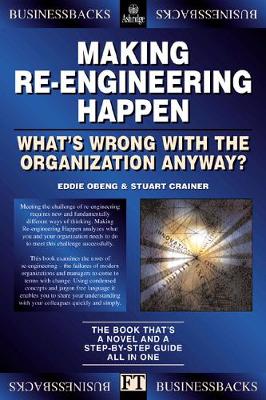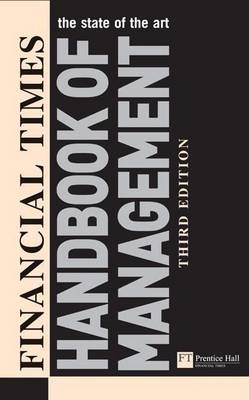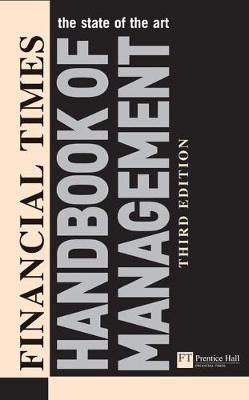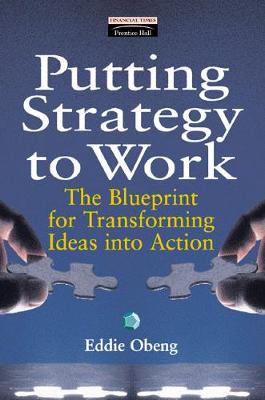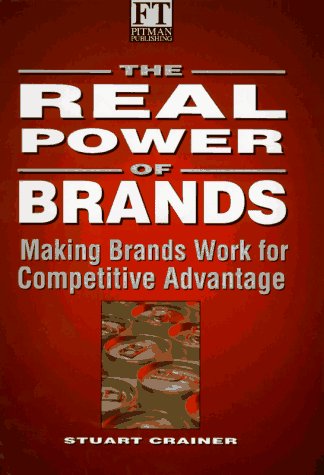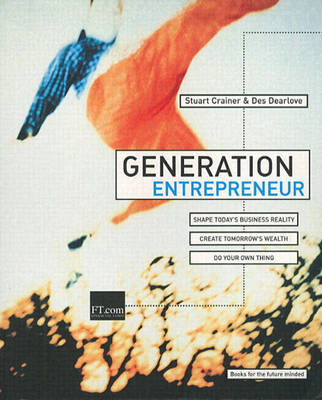Financial Times
9 total works
In the past, managers put out fires. In the future, managers will light the fires of enterprise.
On the innovation frontier, ideas, talent and capital move in perpetual free-flow. They move where the money can be made - or will be made at some time in the future. But in traditional companies, ideas, talent and capital can ossify rather than multiply. Despite the rise and fall of the dot.com sideshow, the days of the traditional corporate model - size, central control and no stake for the talented - look numbered when it comes to creating and delivering value from new ventures. Business needs to get better at starting the fires of enterprise. Firestarters examines the best of the start-up and corporate worlds to describe an organization where entrepreneurial zeal lives and where resources flow quickly and profitably to the best new ideas.
Firestarter organizations create entrepreneurialism through motivation and context. They work like this:
New models: They explore new organizational models. They are not stuck in the past of military or mechanistic models.
The empty organization: They realize that they need to be lean and efficient. They outsource. They focus on what they excel at.
Launch and learn: They are adept at moving quickly with ideas, making them happen, now.
Networked: They are networked, internally and externally. They continually seek out new network partners.
Local area networks: And they network intimately with those in their geographic area. They turn neighborhoods into networks.
Work with meaning: They provide values and meaning for all those who work with them.
Entrepreneurial: In a word Firestarter Inc. glows with entrepreneurial purpose.
Association of MBA's Executive's Guide to Management Development Courses
by Des Dearlove
What Do High Performance Managers Do?
by Stuart Crainer and Philip Hodgson
The world of business never stands still. Today’s dominant force is tomorrow’s sideshow. Fashions change and best practice evolves. For managers one certainty endures; the more you know the higher you go.
From crafting strategies to delivering results, questions of management will always be too varied, perplexing and challenging to yield a single answer. They are best explored with the help of many perspectives.
The third edition of the Financial Times Handbook of Management encapsulates this world of management thinking, reflecting what matters to managers in organizations in the first decade of the new century. A compelling and comprehensive companion to management’s big ideas, brilliant minds and better ways, the Handbook is packed with intelligent writing to bring management alive for the thinking executive.
The Financial Times Handbook of Management captures the state of this indispensable, inspiring, invigorating and essential art:
The thinkers:
Including Igor Ansoff, Chris Argyris, Warren Bennis, James Champy
W Edwards Deming, Peter Drucker; Henri Fayol, Sumantra Ghoshal, Marshall Goldsmith, Lynda Gratton, Gary Hamel, Charles Handy, Phil Hodgson and Randall White, John Kay, Chan Kim and Renée Mauborgne, Philip Kotler, Ted Levitt, John Micklethwait & Adrian Wooldridge, Henry Mintzberg, Rosabeth Moss Kanter, John Mullins, Kjell Nordström and Jonas RidderstrSle, Kenichi Ohmae, Richard Pascale, Tom Peters, Michael Porter, CK Prahalad, Edgar Schein, Hermann Simon, Jonathan Story, Don Sull, Fons Trompenaars, Bruce Tulgan, Elizabeth Weldon, Jerry Windand many more.
The foundations:
Strategy and competition
Globalization
Managing Human Resources
Operations and Service
Marketing
Finance
Organization
Ideas, information and knowledge
Entrepreneurship
Ethics
The Skills:
Managing globally
Leading
Managing change
Communicating
Managing yourself and your career
Making it happen
Developing and learning
In business, grey hair and conservative suits used to be compulsory. Button-down constraint was the order of the corporate day. Now fresh-faced entrepreneurs in combat pants stare out from countless business magazines. They do not conform. They have no need to belong. And, they are wildly successful. The men and women who are the new wealth-creators and shapers of business are Generation Entrepreneur. This new breed of entrepreneurs think differently about life in general - and business in particular. They are the new generation of e-literate, entrepreneurial managers and knowledge workers and they are unlike anything that came before. Most people have heard of gen e's big hitters: thirty-somethings like Michael Dell, founder of Dell Corporation, and Jeff Bezos, founder of Amazon.com; and twenty-somethings like the co-founder of Netscape, Marc Andreessen. This is just the tip of the iceberg - and it's an iceberg that is sinking old-style corporations. Generation Entrepreneur takes the opportunity to define the moment and envisage the future. It examines generation e from every angle: Who are generation entrepreneur?What are their values? Is loyalty really dead?
How do generation entrepreneurs balance their work and life? What are the implications for corporations? Where are the hotbeds of activity? What drives these people and what are their key characteristics? Corporate man died out in the downsizing age. The Yuppies look Neanderthal by comparison. Generation Entrepreneur is running the show now - and making up the new rules of business as it goes along. Meet the new wealth creators. Read the handbook for the new business generation.

